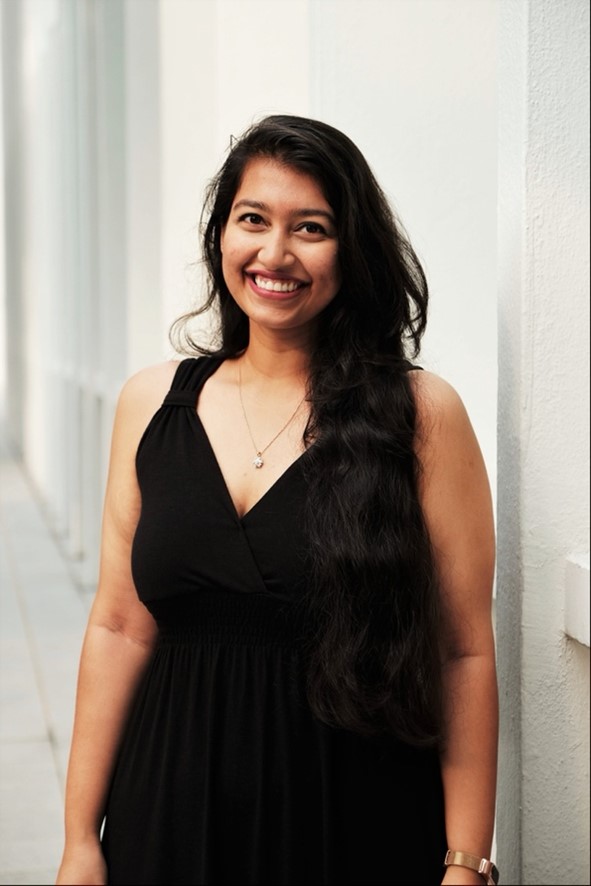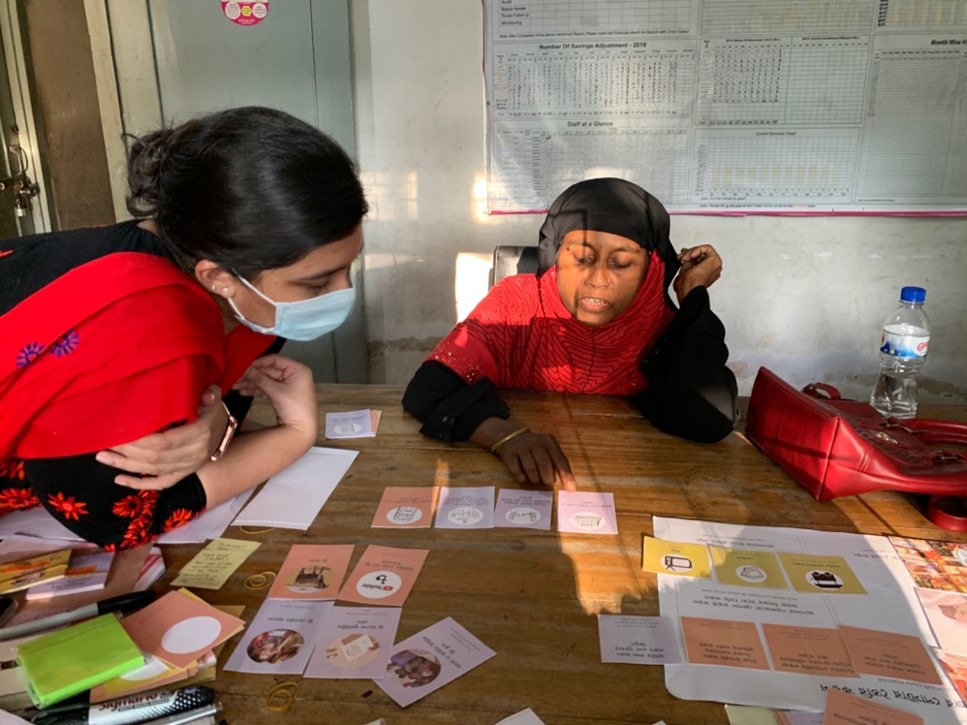Raiya Kishwar Ashraf
MPP 2019
Manager, Information Ecosystem and Partnerships, Social Innovation Lab, BRAC
Non-profit Organization Management
Reading "Banker To The Poor" helped a teenage Raiya Kishwar Ashraf connect the dots between economics, public policy and changing people's lives. The 2006 autobiography by Grameen Bank founder Muhammad Yunus and an internship with Sir Fazle Hasan Abed's BRAC kickstarted the education and work that Raiya wanted to pursue – in international development.
"That's when I began imagining work and career as a means to improve the lives of those around me, not just me and my family," says Raiya, who studied politics, philosophy and economics at the Asian University for Women in Bangladesh. She later received a scholarship to pursue her master's degree in public policy at LKYSPP, where she also took part in the UNICEF internship programme.
 Raiya Kishwar Ashraf was greatly inspired by the autobiography of micro-financing pioneer and Nobel Peace Laureate Muhammad Yunus.
Raiya Kishwar Ashraf was greatly inspired by the autobiography of micro-financing pioneer and Nobel Peace Laureate Muhammad Yunus.
Today, Dhaka-based Raiya, 28, works at the crossroads between international development and fintech at BRAC, the world's largest NGO with over 90,000 employees and reaching over 126 million people with its services. She is part of BRAC’s Social Innovation Lab, where she helps design new project approaches that integrate digital financial services in the community while keeping solutions sustainable and inclusive. Her current focus is getting local unbanked women in Bangladesh to use digital technologies and mobile money, which helps them improve digital literacy and includes them in the financial system.
Raiya explains, "Together with a design partner, we began prototyping in hard-to-reach communities to find the right combination of services that can help build confidence in women and improve their control and trust over digital financial services. We experimented for a year and are now piloting this model with 5,000 women in Bangladesh. Models such as these are tested for sustainability with the aim to be frugally replicable in other global South countries. The goal is also to learn from failures as they happen."

Raiya (left) running design experiments with women in Habiganj, a hard-to-reach region in Bangladesh, to help them learn about mobile money and other digital financial tools.
Her work at BRAC is an example of what can be achieved in international development outside the United Nations and development banks. For those keen on following in these footsteps, Raiya has a tip. "You can expand your horizons by expanding the kind of work that you do. You can start at the community level and private-sector organisations.
Her work at BRAC is an example of what can be achieved in international development outside the United Nations and development banks. For those keen on following in these footsteps, Raiya has a tip. "You can expand your horizons by expanding the kind of work that you do. You can start at the community level and private-sector organisations. So, for example, if you want to improve policies or quality of work in the fast-fashion industry, you could join H&M foundation or other foundations in the private sector."
Looking ahead, Raiya has plans to work for other Global South countries like Uganda with her knowledge of digital financial tools. "I appreciate how data can be harnessed in creative ways and used frugally. I'd love to see if these same tools can improve the impact in sectors like education or health."
For now, working in international development comes at an exciting moment. As Raiya says, "International development is in a time of transition. We have more technologies now, such as the blockchain, that can greatly improve how we track activities and accountability and test our impact. There's a lot more that we can work with, and I'm happy to be on this journey."